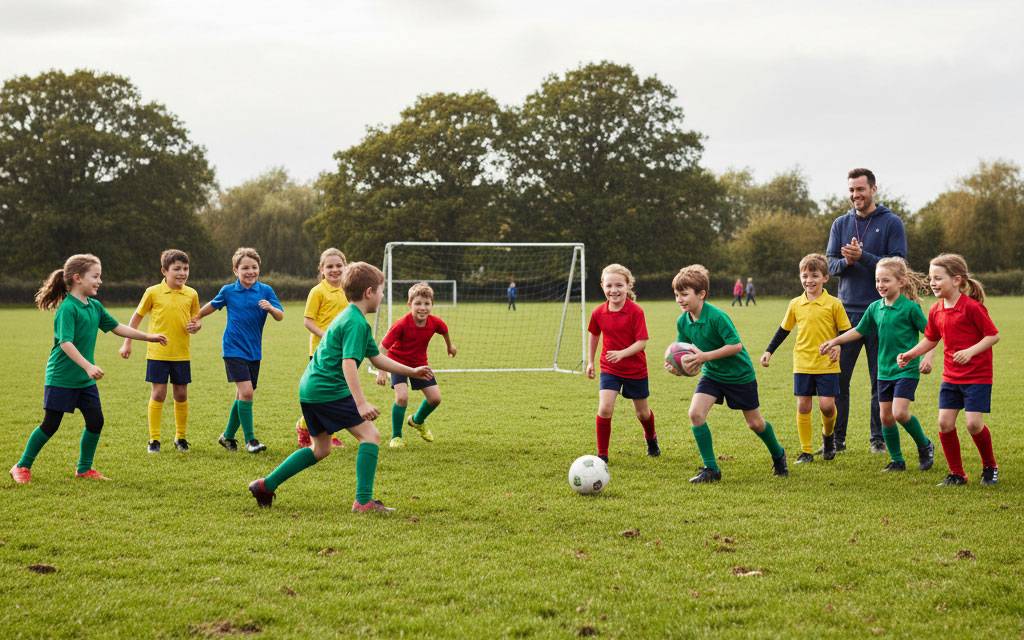Creative Ways to Keep Young Players Active and Motivated
Keeping young players engaged in sports can sometimes feel like a challenge, especially when attention spans are short and the competition for their interest is high. However, with a little creativity, coaches and parents can make activities enjoyable, motivating, and rewarding. Whether through structured sessions or fun games, maintaining enthusiasm for physical activity is key.
Make Training Fun and Varied
Young players respond best to sessions that are dynamic and entertaining. Instead of sticking to repetitive drills, mix things up with obstacle courses, relay races, and skill challenges. For example, a simple dribbling course can be turned into a mini race where children compete against the clock or work in pairs to encourage teamwork. These types of activities not only improve physical skills but also keep sessions lively and enjoyable. Football training for kids can be most effective when creativity is incorporated, ensuring they look forward to each session.
Use Positive Reinforcement
Motivation often comes from recognition. Praising children for their effort rather than just their results encourages a growth mindset and builds confidence. Small rewards, stickers, or even verbal acknowledgment for achievements can have a lasting impact. Celebrating milestones, like learning a new skill or showing improvement, helps children understand that progress is more important than perfection. In football classes for kids, this approach ensures players remain engaged and feel valued, boosting both morale and commitment.
Encourage Teamwork and Collaboration
Team sports offer a unique opportunity to teach social skills alongside athletic abilities. Incorporating activities that require teamwork fosters cooperation, communication, and problem-solving. For instance, pairing children up for passing drills or group challenges can highlight the importance of supporting each other on and off the pitch. Encouraging young players to work together strengthens friendships and creates a positive environment where every child feels included, which can be particularly motivating for less confident players.
Set Achievable Goals
Breaking skills down into manageable goals helps children stay motivated and see tangible progress. For example, instead of focusing on mastering a complex dribbling technique in one session, coaches can set smaller targets like completing a short course without losing control of the ball. Gradually increasing difficulty keeps players challenged without overwhelming them. Football training for kids thrives when sessions are structured around achievable goals, giving young players a sense of accomplishment that fuels continued participation.
Incorporate Games and Challenges
Transforming drills into games can dramatically boost engagement. Children naturally enjoy friendly competition, so incorporating challenges like mini-tournaments, skill-based contests, or “capture the flag” style games with a football twist can make practice sessions exciting. These games provide opportunities to practice techniques while keeping the focus on enjoyment rather than pressure. Football classes for kids that blend fun with skill development help maintain attention and motivation, making children more likely to attend consistently and improve over time.
Foster a Love for the Sport
Ultimately, keeping young players active and motivated is about helping them enjoy the sport itself. Sharing stories of professional players, watching matches together, or inviting children to express what they love about football encourages emotional connection. When children feel passionate about what they’re doing, physical activity becomes a natural part of their routine rather than a chore. Coaches and parents who nurture this enthusiasm lay the groundwork for long-term engagement, both on the pitch and in broader life activities.
Conclusion
By blending creativity, positivity, and structured guidance, football training for kids can be both effective and enjoyable. Incorporating varied drills, celebrating achievements, promoting teamwork, setting achievable goals, and making sessions fun ensures children remain active, motivated, and eager to develop their skills. Football classes for kids are most successful when they inspire both confidence and a genuine love for the game, creating lasting memories and a foundation for lifelong participation in sports.

